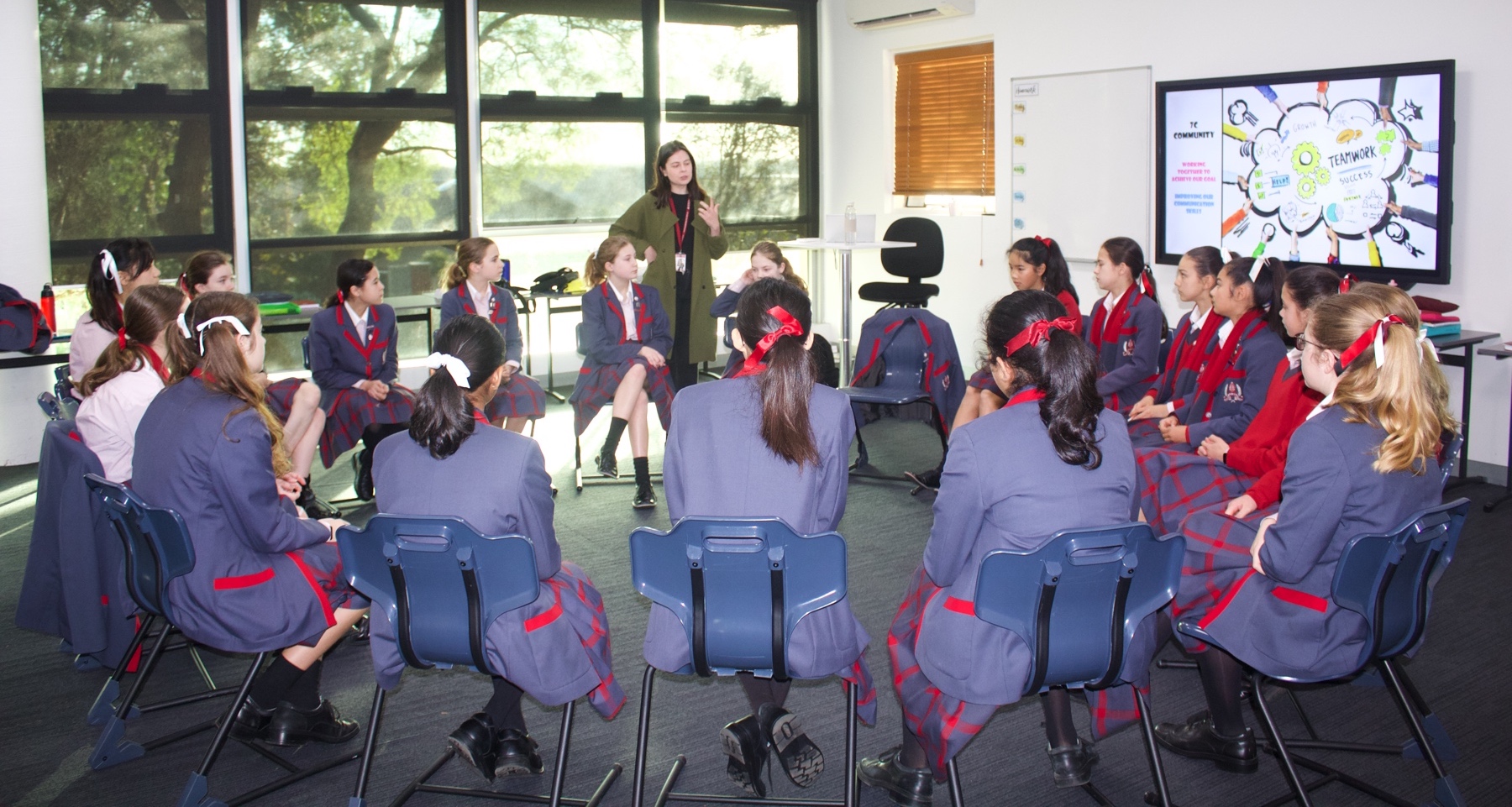As part of Korowa’s Student Wellbeing programs, our parents are invited to regular ‘Pop Up Parenting’ seminars with visiting and in-school experts.
In May 2019, we welcomed author and Associate professor of Psychology Erica Frydenberg to the program. Erica is an educational, clinical and organisational psychologist who has practiced extensively in the Australian educational setting and she spoke about: coping strategies, personal best, active listening and changing perspectives. An important message that Erica conveyed through her presentation was the overarching idea that parents need to implement their own problem-solving and coping strategies at home that work for them and their daughter to reinforce the skills.
She also shared these five tips:
1. Implement a range of coping strategies: Erica listed her top 12 strategies to help students learn to cope ‘better’ when situations arise including; recognising social support, venting and stop, focus upon problem-solving skills, physical activity, humour and spiritual and professional help.
2. Always focus on personal best: Erica stressed the importance of students recognising their ‘personal best’ and accepting what their best efforts are in order to reduce expectations. Changing the language of “my mark wasn’t very good….” to, “I have shown improvement….” Presenting a realistic view of self and appreciation of own ability. Don’t compare themselves to others, reinforce what is working and seeing everything as a challenge rather than a threat.
3. Practise active listening: Erica highlighted that effective communication with all stakeholders is very important so that students feel connected. Really taking the time to let the girls vent and listening to what they are saying. The car ride is a good time for this. Try and demonstrate complete concentration; understanding, and responding to what your daughter is really saying.
4. Encourage a team approach to Problem solving: Erica spoke about reinforcing the ‘I’ messages with students, asking questions that can highlight what the source of each dilemma is and also the importance of ‘we’ in the sharing of solution based problem-solving.
“How do you feel?”
“Did I hear right that…..”
“What is the main problem?”
“What would you like to see happen?”
“What can I do to help?”
5. Consider changing your perspective: Ask yourself: What is working? What are you doing well? And then adjust your approach accordingly.
By Kate Tanner, Head of Cripps (Year 7 and 8)




